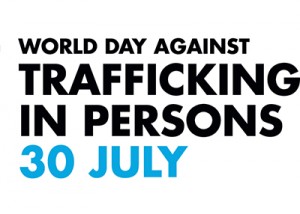How to Honor World Day Against Human Trafficking Annually
By Chelsea Warren, Public Relations –
When I used to travel a great deal in Guatemala, I noticed an interesting phenomenon as I would walk through the rural villages of the mountains — people would grab their children and hide them from us. If you talked to a random child on the street, people would look at you suspiciously and even angrily.
It was several weeks before I finally broke down and asked a local what the situation was. “Foreigners come here and they steal our children,” was the response. Upon further enquiry, I was told about numerous occasions where people would come in and kidnap children, presumably selling them to human traffickers. With Guatemala’s strict international adoption laws, it’s not unheard of for foreigners to pay to have Guatemalan children taken and then smuggled out of the country for adoption.
Modern-day Slavery
Before this experience, I had never really heard of modern-day slavery. It seemed like an antiquated notion from the pages of dusty, old textbooks. And yet the problem is worse today than it’s ever been. According to the U.N., an estimated 2.5 million people are trapped in slavery today. The crimes committed against victims are some of the worst humanity has yet devised. One in four victims are children and the majority of them are female. Human trafficking is allowed to continue largely because of corruption in local governments and law enforcement.
It’s Time for a Change
To bring awareness to the topic, the U.N. has designated every July 30 as World Day Against Trafficking in Persons, with the first one occurring this year. While it’s not a fun day to celebrate like Christmas or Halloween, it is an important one and there’s lots of different ways to get involved. You can participate in the #IGiveHope campaign on Twitter to raise awareness about the issue. You can donate directly to the United Nations Voluntary Trust Fund for Victims of Human Trafficking. Most of all, you can take the time to educate yourself about the issue, so you can learn how to address it in your own community.
One tool that may be instrumental in the fight against human trafficking is EyeDetect®, an ocular-based lie detection system that tracks involuntary eye movement to see if someone is being deceptive. Governments that do not have anti-polygraph laws could use this tool to screen local governments officials, effectively cracking down on the corruption that allows human trafficking to continue.


